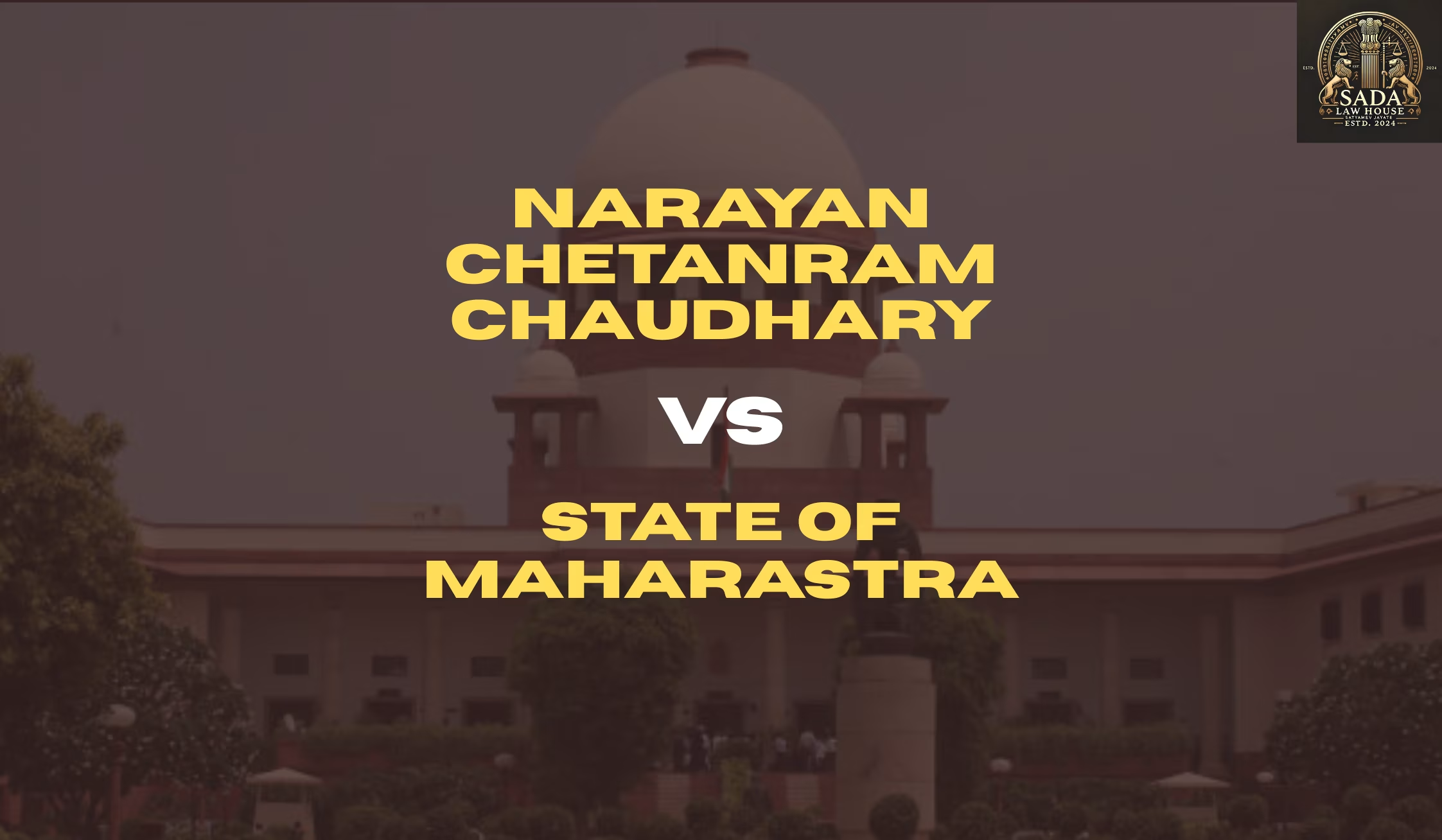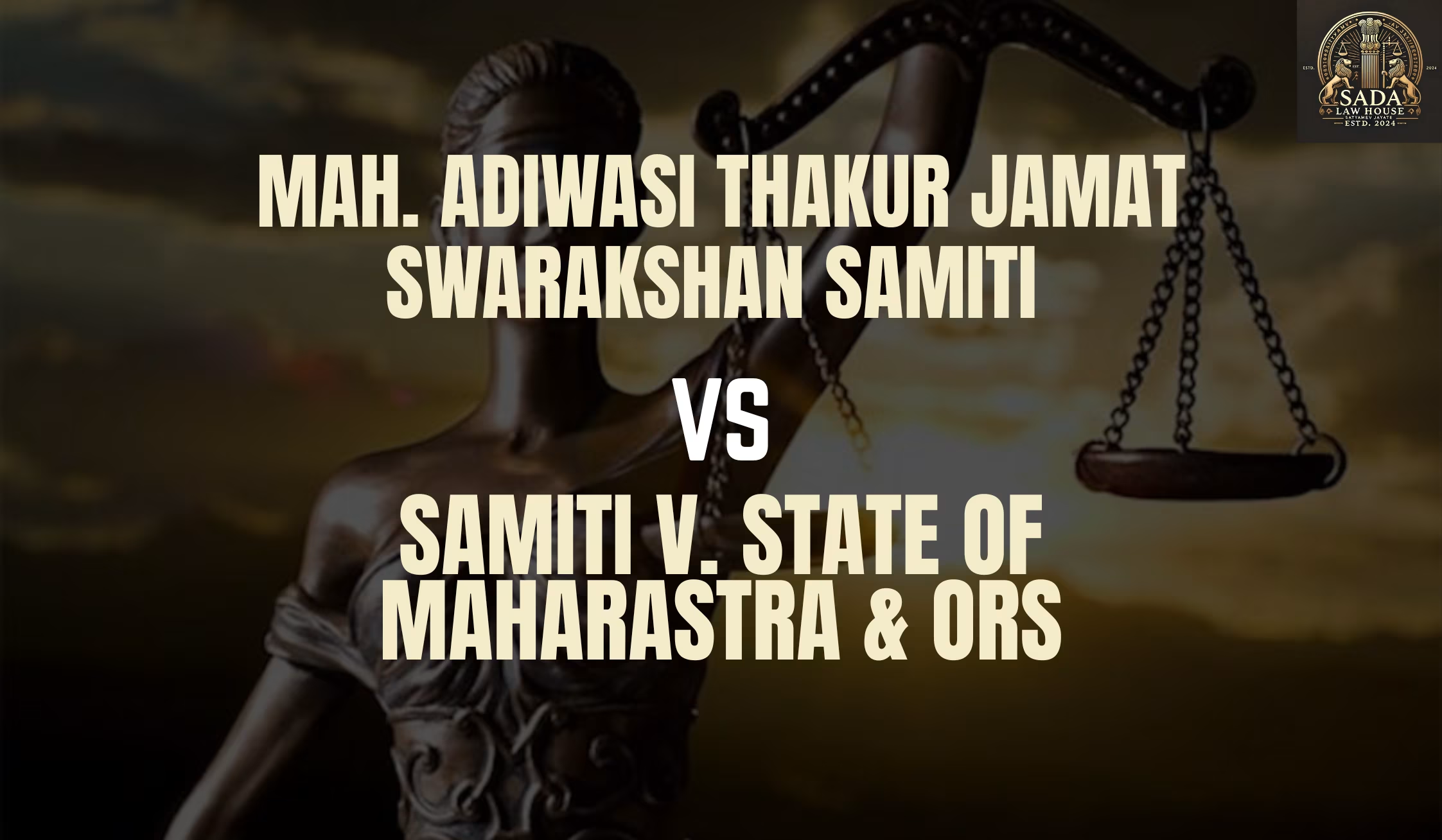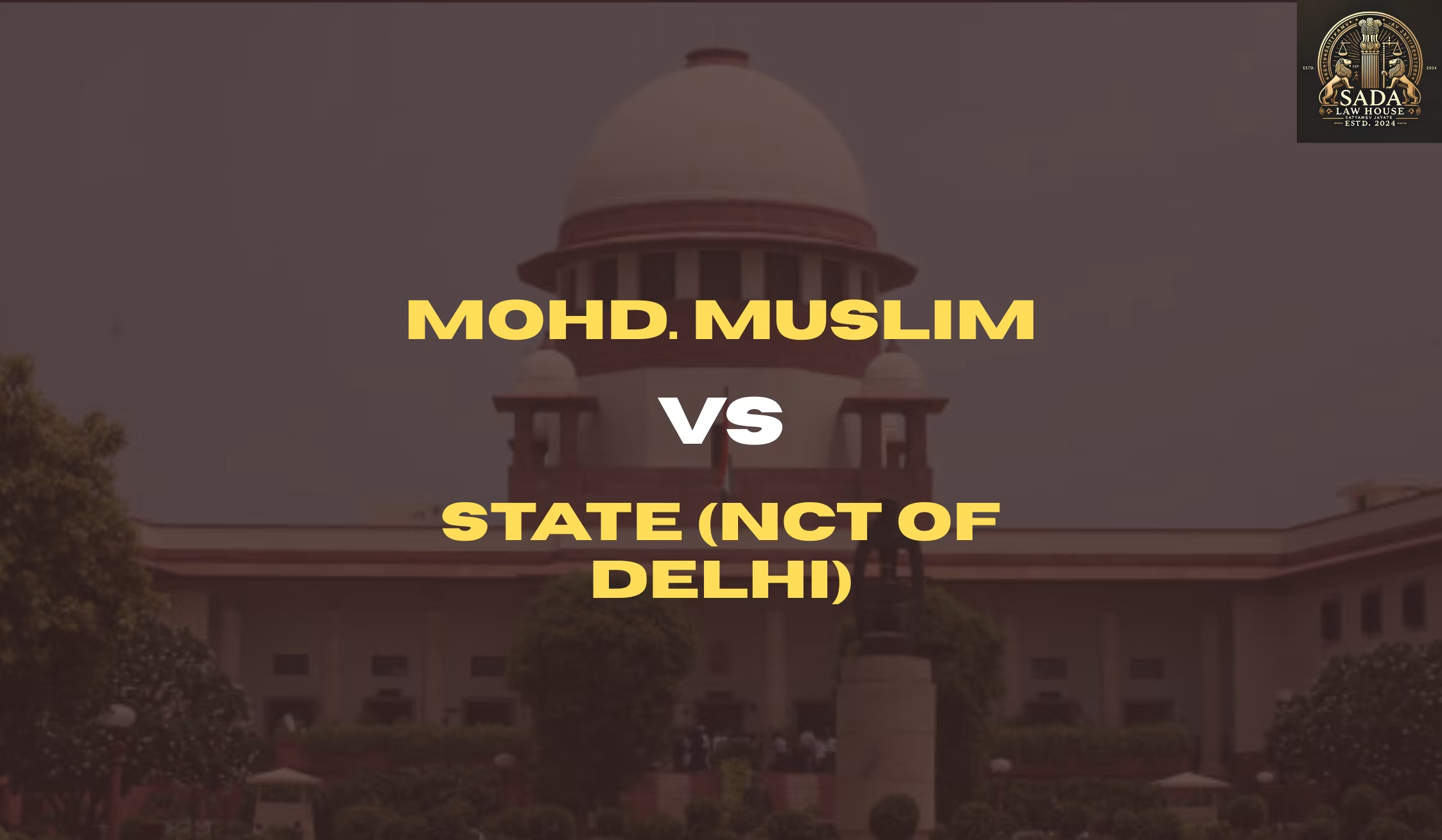Supreme Court on Unlawful Arrest: Vihaan Kumar Case and the Right to Be Informed of Grounds of Arrest
- NITU KUMARI
- 06 May 2025

Discover how the Supreme Court of India upheld constitutional rights in the 2025 Vihaan Kumar case, emphasizing the illegality of arrest without communicating grounds and the violation of human dignity through inhumane treatment.
Overview
In the landmark case of Vihaan Kumar vs State of Haryana, the Supreme Court of India reinforced the constitutional mandate under Article 22(1) of the Indian Constitution, ruling that failure to inform an arrested person of the grounds for arrest renders the arrest unlawful.
Case Details
Case Citation: 2025 INSC 162
Date of Judgment: February 7, 2025
Bench: Justice Abhay S. Oka, Justice Nongmeikapam Kotiswar Singh
Criminal Appeal No.: 621 of 2025
Background of the Case
On June 10, 2024, Vihaan Kumar was arrested in connection with FIR No. 121 of 2023 under Sections 409, 420, 467, 468, and 471 read with Section 120-B of the Indian Penal Code. He was taken from his office in Gurugram and presented before the magistrate only on June 11, exceeding the 24-hour limit set by Article 22(2) and Section 57 of the BNSS.
During custody, Kumar was allegedly handcuffed and chained to a hospital bed at PGIMS Rohtak, violating his Article 21 right to dignity.
Legal Issues Raised
Key Constitutional Questions
Was the arrest illegal due to non-communication of grounds under Article 22(1)?
Did handcuffing and chaining violate the right to dignity under Article 21?
Can subsequent legal proceedings validate an arrest tainted by constitutional violations?
Supreme Court Judgment
The Supreme Court ruled in favor of the appellant, declaring the arrest unlawful for violating Article 22(1). It ordered:
Immediate release of the appellant.
Nullification of remand orders.
Issuance of guidelines against handcuffing accused individuals in hospitals.
Violation of Article 22(1): Grounds Must Be Communicated
The Court emphasized that arrested individuals must be clearly and effectively informed—preferably in writing—about the reasons for their arrest. Referring to cases like Pankaj Bansal v. Union of India and Prabir Purkayastha v. State (NCT of Delhi), the Court rejected vague oral notifications as insufficient.
Violation of Article 21: Inhumane Treatment
The act of handcuffing and chaining Kumar in a hospital bed was deemed a gross violation of his dignity. Photographic evidence led to disciplinary actions, including the suspension of involved police officers.
Ineffectiveness of Subsequent Proceedings
The Court ruled that legal procedures like remand or chargesheets cannot rectify constitutional violations at the time of arrest. Once an arrest is declared unconstitutional, all subsequent proceedings are invalid.
Conclusion
The judgment in Vihaan Kumar vs State of Haryana stands as a critical reaffirmation of constitutional rights and due process in Indian criminal law. It strengthens the legal framework protecting individuals against arbitrary arrest and emphasizes the role of the judiciary in upholding fundamental rights.
This case sets a vital precedent for safeguarding civil liberties and ensuring accountability within law enforcement.
Case Laws






